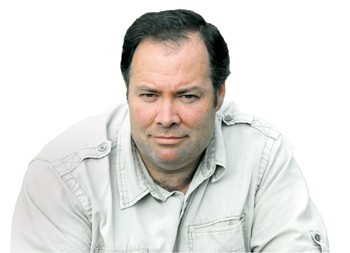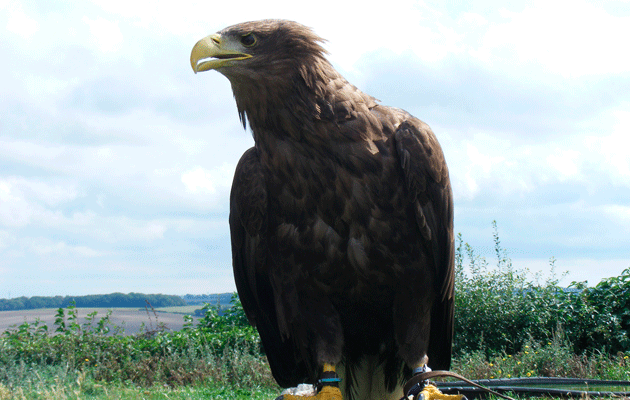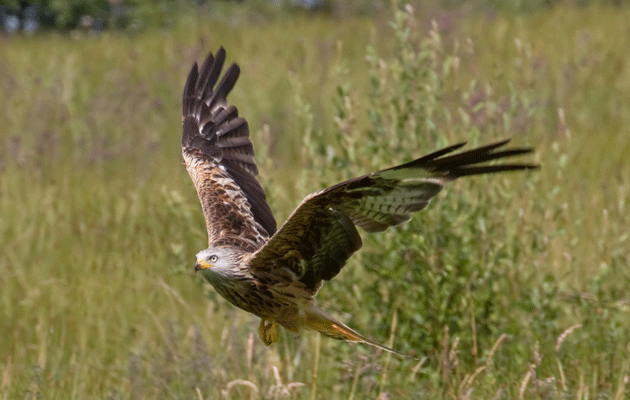Sharpshooter

The Dutch parliament has just voted to outlaw the traditional animal slaughter methods favoured by some Muslim and Jewish communities. The move has provoked an outcry from religious leaders representing one million Dutch Muslims and 40,000 Dutch Jews. Here in Britain, Jonathan Sacks, the Chief Rabbi, has joined the anti-ban campaign. If push comes to shove, I would probably support him. True, I don?t like the thought of slaughtering livestock without prestunning, but I am not convinced that it is so inhumane that we should override the rights and freedoms of religious communities.
Which leads me on to the subject of the RSPCA ? an organisation that loves to impose its views on others. Take the RSPCA?s vicious campaign to ban the traditional British activity of hunting with hounds, a sport that is woven into the very fabric of our rural culture. On several occasions I asked the RSPCA how much it spent on campaigning to ban hunting with hounds. I have never been given a straight answer, but it must have been a substantial sum.
For me, the fact that most individual RSPCA officers do good animal welfare work is sullied by the way the charity has concealed its financial involvement in the anti-hunting movement. This was exacerbated by the fact that the advertising it funded at the time was some of the most hateful I have ever seen, openly demonising hunting people.
Double standards?
So what is the RSPCA?s stance on ritual slaughter methods of the sort that has just been banned in Holland? Funnily enough, the charity doesn?t seem to be anywhere near as vociferous about halal or kosher slaughter. This is curious, because the RSPCA is offi cially opposed to slaughter without pre-stunning, though the charity?s policy on this topic is not exactly being posted on billboards, as it was on hunting.
Searching on the Internet, I found the relevant RSPCA policy on an information sheet on religious slaughter, dated February 2009. The wording and layout of this document are masterly. The charity tiptoes around the subject, seeming desperate to avoid any possible charge of being insensitive. Thus, on the front page of the three-page document, we see a quote given prominence in a box. It states: Around 90 per cent of halal slaughter involved pre-stunning. So that?s OK, then.
Part of the introduction says: While the RSPCA believes that religious beliefs should be respected, we also believe that animals should only be slaughtered under the most humane conditions. Hidden in a paragraph on the last page, the charity finally admits that it is opposed to the slaughter of any food animal without pre-stunning. It goes on to say it will continue to press for legislation that would improve the welfare of animals at the time of slaughter. All very calm and reasonable.
As a matter of interest, how many animals are killed according to religious methods without pre-stunning? Well, the RSPCA information sheet quotes a study showing that in just one week during 2003, the number of animals killed for kosher and halal meat totalled more than two million poultry, more than 140,000 sheep and nearly 1,600 cattle. Now, if we work on the basis that about 10 per cent of these animals were killed without pre-stunning, then that equates to more than 200,000 animals killed in a manner that the RSPCA opposes. We could be talking about well over 10million animals a year being slaughtered in the UK by a method that the RSPCA opposes. This is in a completely different league to the alleged plight of a relatively tiny number of foxes, which was the justification for the RSPCA?s anti-hunting campaign.
Given its remit as an animal welfare charity, how does the RSPCA explain the contrast in its treatment of fox hunting on the one hand, and the slaughter methods used for halal or kosher meat on the other?
Have your say: if you have a view on a current news topic, send it, in no more than 500 words, to [email protected].
What is YOUR opinion?
Join other ST readers in our forums to discuss your views.
Like this article? Mark this page on a social bookmarking website…
![]()
What are social bookmarking sites?








